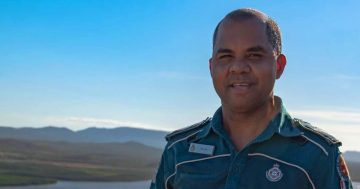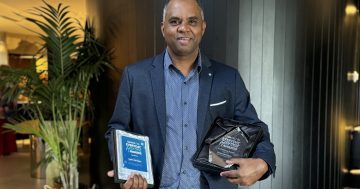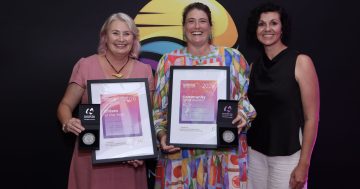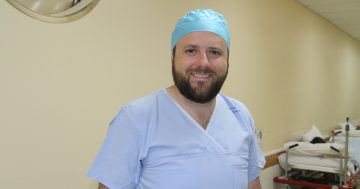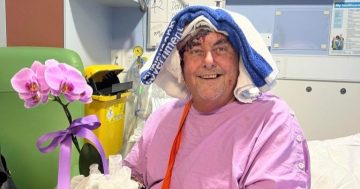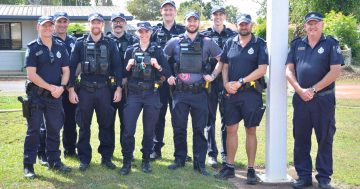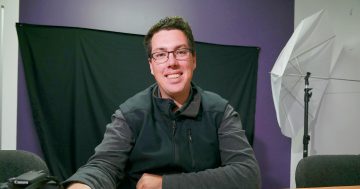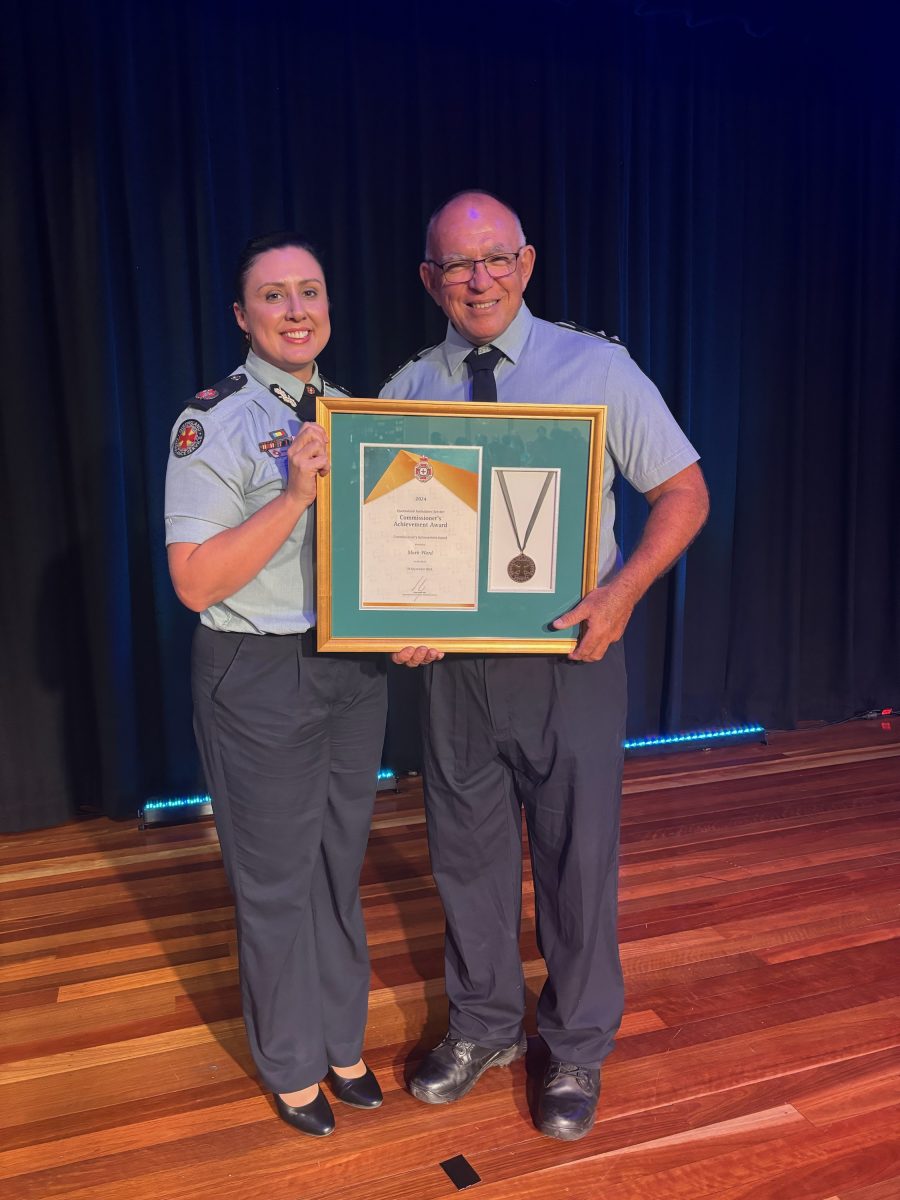
Queensland Ambulance Service Far Northern Region Assistant Commissioner Brina Keating presents Weipa field officer Mark Ward with his 2024 Commissioner’s Achievement Award for excellence in leadership at a ceremony in Brisbane on 13 September. Photo: Supplied.
The ink is barely dry on the prestigious award bearing his name but Weipa’s Queensland Ambulance Service (QAS) field officer is refusing to waste any time celebrating as he prepares to sink his teeth into his next project to provide better health outcomes on Cape York.
Mark Ward was presented with a 2024 Commissioner’s Achievement Award for his innovative leadership during a ceremony in Brisbane on 13 September and said it was “pretty special” to be recognised for his efforts.
“It means a lot,” he told Cape York Weekly after his win.
“It’s the highest recognition that I could have got, so that’s pretty special; it’s just recognition of the work I’ve been doing on Cape York but it definitely helps to support future project as well, knowing the work I’ve been doing has been recognised.”
Mr Ward received his award for empowering communities through excellence in leadership, improving remote ambulance service delivery and the myriad projects he has driven, including a three-year effort to map sites, tracks and airstrips across Cape York to tighten response times to remote medical emergencies.
“It’s about marking tracks on Cape York and landing strips and rivers and creeks, so we can use them as landmarks and get a much better location of incidents and patients,” he explained.
“The fact you’re dealing with an area just a bit smaller than the size of Victoria with just four ambulance stations makes it a really big challenge, and you’ve got to work out how to manage that.”
QAS Commissioner Craig Emery said the ceremony provided an occasion to pause and reflect on the achievements of staff from all corners of the state.
“Our emergency medical dispatchers experienced our busiest day for triple zero calls in all QAS’s history in February, and our paramedics are being called out to more critical incidents than ever before,” he said.
“The dedication of QAS staff does not go unnoticed, and I thank them for their extraordinary and compassionate efforts each and every day.”
Mr Ward said the nature of his work – especially the remote mapping project – meant he felt like a mix of paramedic and pioneering “explorer”, an element that helped ensure no two days were ever the same.
“It feels like that sometimes, because my work car has a fridge and rooftop tent in it, which makes it exciting for me, which is good,” he explained.
He added it was a case of getting back to “business as usual” following his return from Brisbane, with a focus on a new project aimed at determining the cause of iron deficiencies in young Indigenous children.
“One of the projects that we need to look at is trying to work out why Indigenous children have such low iron levels before school age, which is not heard of in the south-east corner and urban areas,” he said.
“That’s a project I want to get under way and try to get an answer from.
“There’s a lot to do, so it’s still head down, arse up and moving forward.”
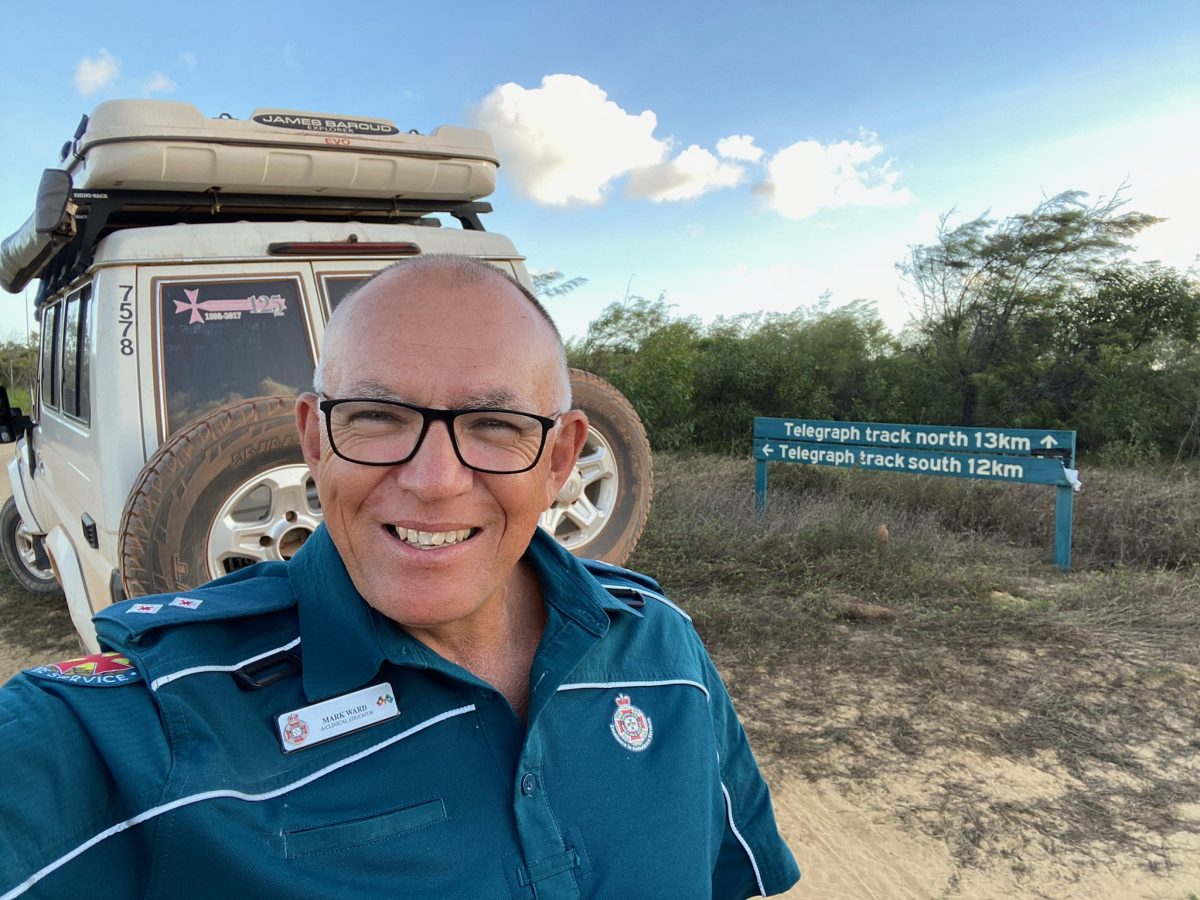
Weipa-based Queensland Ambulance Service field officer Mark Ward says it is still a case of “head down, arse up and moving forward” trying to deliver better health outcomes for Cape York after being recognised with a prestigious Commissioner’s Achievement Award last week. Photo: Supplied.


